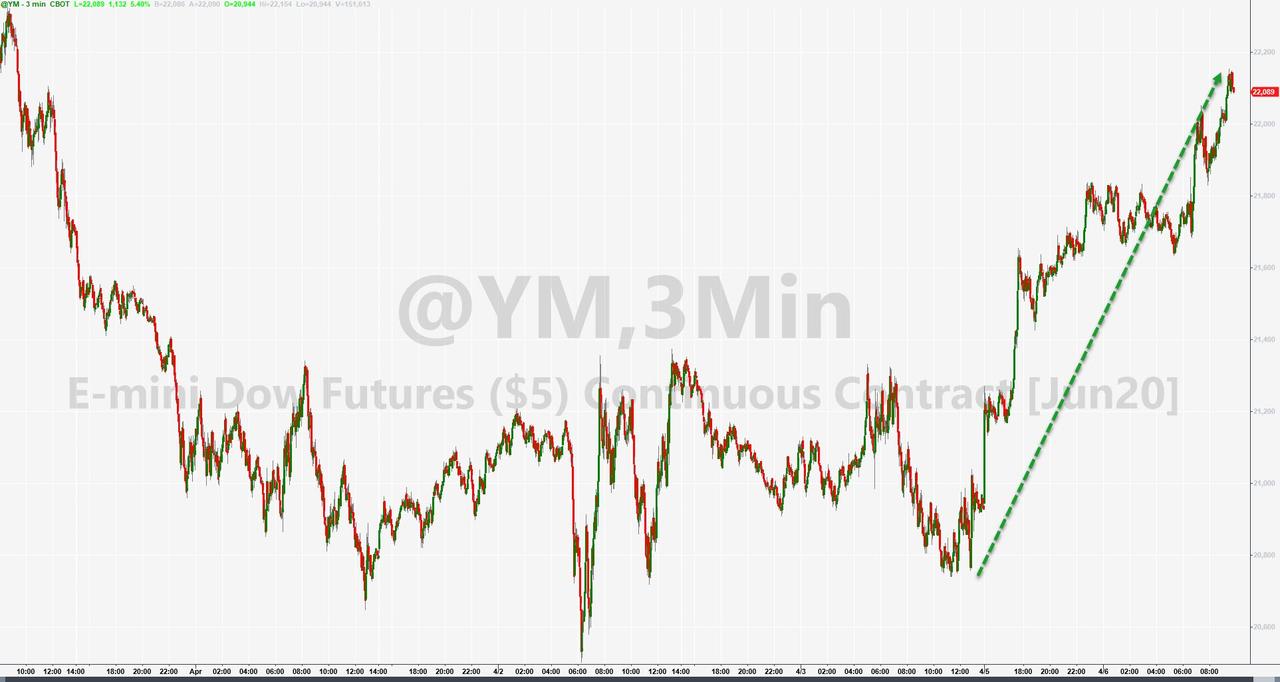Is this a sign of spiking consumer confidence or just a signal of a less shitty week to come?
It has begun...,yes she is at the returns counter and yes she is doing exactly what you think she's doing.....
1,697 people are talking about this
The futures markets seem to like it, but you decide...

You think the Masters of the Universe and their algos are going to use toilet paper returns as a source of alternative data to signal a economic inflection point and get all lathered up in spooz only to get wiped out?
Just askin'...


Commenti
Posta un commento